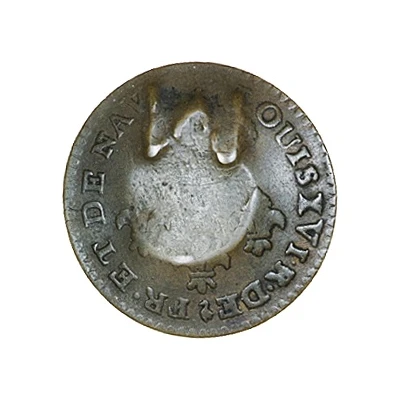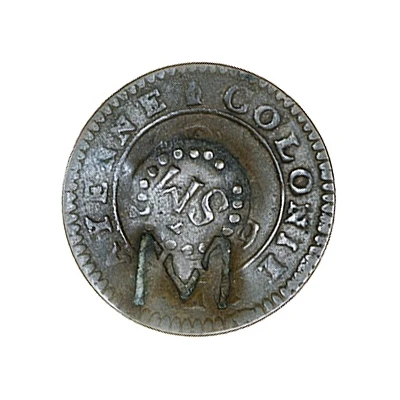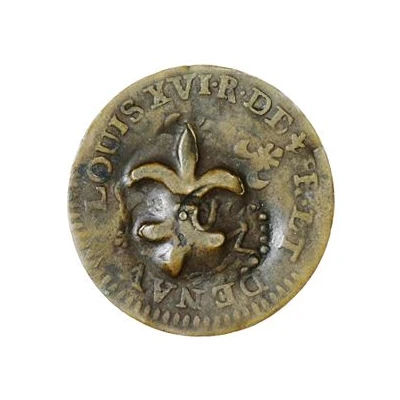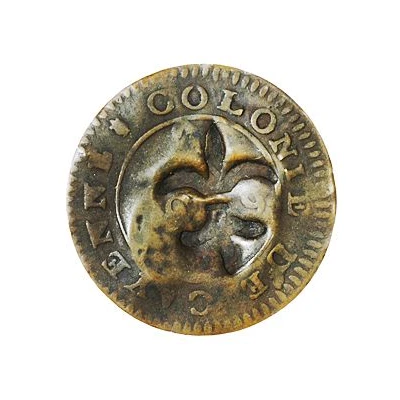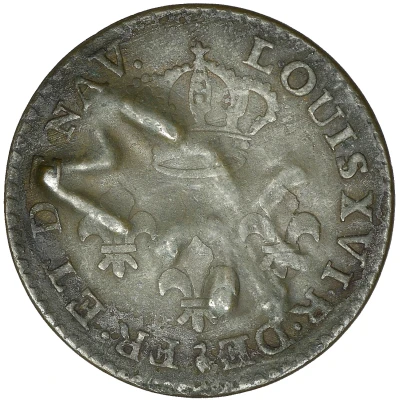
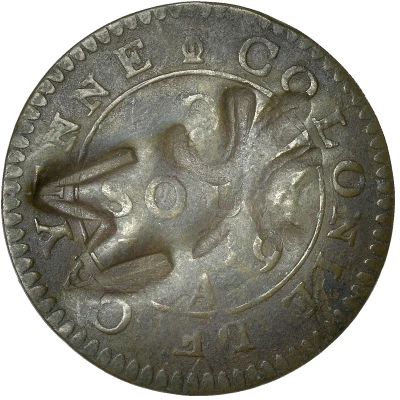

© Dix Noonan Webb
Stuiver "Cayenne-Stuiver" Countermark C20 + fleur-de-lis ND
1820 year| Billon | 1.8 g | 23 mm |
| Issuer | Sint Maarten (Netherlands Antilles) |
|---|---|
| Type | Standard circulation coin |
| Year | 1820 |
| Value | 1 Stuiver |
| Currency | Stuiver |
| Composition | Billon |
| Weight | 1.8 g |
| Diameter | 23 mm |
| Shape | Round |
| Technique | Milled, Countermarked |
| Demonetized | Yes |
| Updated | 2024-10-06 |
| Numista | N#189290 |
|---|---|
| Rarity index | 100% |
Reverse
Cayenne Colony 2 Sous piece, which displays stacked legend surrounded by legend.
Script: Latin
Interesting fact
One interesting fact about the Cayenne-Stuiver coin is that it was used as a form of currency in the Netherlands Antilles, specifically on the island of Sint Maarten, during the early 19th century. Despite being a standard circulation coin, it has a unique design featuring a countermark with the letters "C20" and a fleur-de-lis symbol, which sets it apart from other coins of its time. Additionally, the fact that it's made of billon, a type of alloy composed of copper and silver, adds to its distinctiveness.
